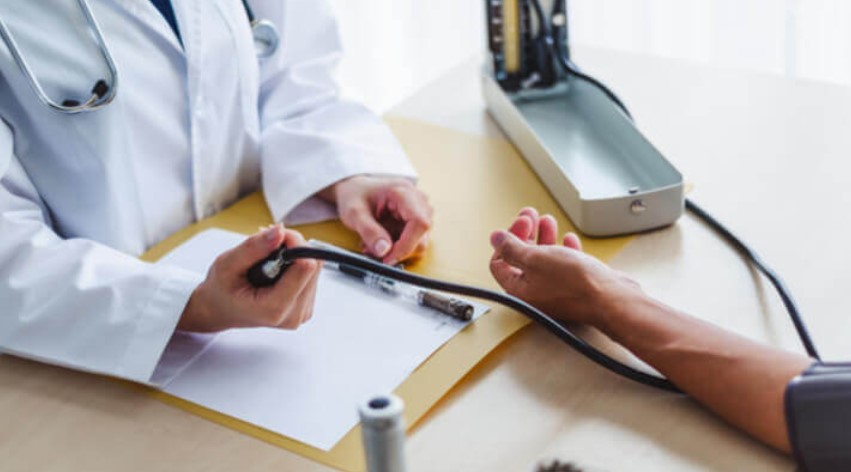As I approach the milestone age of 50, I’ve been thinking a lot about how important it is to take care of my health. Getting regular checkups is essential to catch any issues early and ensure that I can continue to live a happy and healthy life. In this article, I will discuss the various checkups that are recommended for both men and women as they approach 50. These checkups are crucial for detecting any potential health problems early on, so that they can be treated effectively. Let’s dive into the important checkups you need to do when approaching 50.
Physical Examination
One of the most important checkups to have when approaching 50 is a comprehensive physical examination. This usually includes checking your vital signs, such as blood pressure, heart rate, and temperature. Your healthcare provider will also examine your overall physical health, including your heart, lungs, abdomen, and skin. This is a good opportunity to discuss any concerns you may have about your health and to receive guidance on how to maintain a healthy lifestyle.
Blood Pressure Check
High blood pressure, also known as hypertension, is a common problem that can lead to serious health issues such as heart disease and stroke. It’s important to have your blood pressure checked regularly, especially as you approach 50. If your blood pressure is high, your healthcare provider can recommend lifestyle changes or medication to help lower it and reduce your risk of complications.
Cholesterol Test
High cholesterol levels can increase your risk of heart disease and stroke. A simple blood test can measure your cholesterol levels and determine if they are within a healthy range. If your cholesterol is high, your healthcare provider may recommend dietary changes, exercise, or medication to help lower it and protect your heart health.
Blood Sugar Test
As you approach 50, it’s important to have your blood sugar levels checked regularly, especially if you have risk factors for diabetes. High blood sugar levels can indicate prediabetes or diabetes, which can lead to serious complications if left untreated. Monitoring your blood sugar levels can help detect any issues early and allow for prompt intervention.
Vision and Eye Exam
Many people experience changes in their vision as they age, so it’s important to have a comprehensive eye exam around the age of 50. This exam can detect vision problems such as presbyopia, cataracts, glaucoma, and macular degeneration. Early detection of these issues is essential for preserving your vision and overall eye health.
Dental Checkup
Regular dental checkups are important for maintaining good oral health, which is crucial for overall health and well-being. Around the age of 50, it’s a good idea to have a thorough dental exam, including a cleaning and inspection for any signs of tooth decay, gum disease, or oral cancer. Taking care of your teeth and gums can prevent infections and other oral health problems.
Cancer Screenings
Cancer screenings are an essential part of preventive healthcare, especially as you get older. There are several cancer screenings that are recommended for men and women approaching 50, including:
Mammogram
Women should begin having regular mammograms around the age of 50 to screen for breast cancer. Mammograms can detect breast cancer at an early stage when it is most treatable.
Colonoscopy
Both men and women should have a colonoscopy starting at age 50 to screen for colorectal cancer. This test can detect precancerous polyps and early-stage cancer, allowing for early treatment and prevention of more serious complications.
Prostate Exam
Men should talk to their healthcare provider about the benefits and risks of prostate cancer screening around the age of 50. Depending on their risk factors, some men may benefit from a digital rectal exam or a prostate-specific antigen (PSA) test.
Pap Smear
Women should continue to have regular Pap smears to screen for cervical cancer until around the age of 65. This test can detect abnormal cells in the cervix early on, when they are most easily treated.
Skin Cancer Screening
Regular skin cancer screenings are important for detecting skin cancer early, especially if you have a history of sun exposure or a family history of skin cancer. Your healthcare provider can perform a thorough skin exam to check for any suspicious moles or lesions.
Bone Density Test
Osteoporosis is a common age-related condition that can lead to brittle bones and an increased risk of fractures. A bone density test, also known as a DEXA scan, can measure your bone mass and determine if you have osteoporosis or are at risk for developing it. This test is especially important for women approaching menopause, as estrogen levels decline and bone density decreases.
Thyroid Function Test
The thyroid gland plays a crucial role in regulating metabolism, energy levels, and overall health. As you approach 50, it’s a good idea to have your thyroid function tested, especially if you are experiencing symptoms such as fatigue, weight changes, or mood swings. An abnormal thyroid function can indicate an underlying thyroid disorder that may require treatment.
Lung Function Test
If you have a history of smoking or exposure to environmental toxins, a lung function test can help assess your lung health and detect any signs of lung disease, such as chronic obstructive pulmonary disease (COPD) or lung cancer. This test measures how well you can breathe and how effectively your lungs are functioning.
Liver Function Test
The liver is a vital organ that performs many essential functions, such as filtering toxins from the blood and producing bile for digestion. A liver function test can measure the levels of various enzymes and proteins in your blood to assess how well your liver is working. This test is important for detecting liver disease, such as hepatitis or cirrhosis, which can have serious implications for your health.
Kidney Function Test
The kidneys play a crucial role in filtering waste from the blood and regulating fluid balance in the body. A kidney function test, also known as a renal panel, can measure your creatinine and blood urea nitrogen (BUN) levels to assess how well your kidneys are functioning. This test is important for detecting kidney disease or dysfunction early on, when it is most treatable.
Hormone Levels Test
As you approach 50, your hormone levels may start to fluctuate due to aging or hormonal imbalances. Testing your hormone levels, such as estrogen, testosterone, progesterone, and thyroid hormones, can help identify any deficiencies or excesses that may be contributing to symptoms such as fatigue, weight gain, mood changes, or sexual dysfunction. Balancing your hormones can improve your overall health and well-being.
Mental Health Assessment
Mental health is an important aspect of overall well-being, especially as you age. Around the age of 50, it’s a good idea to have a mental health assessment to evaluate your cognitive function, mood, and emotional well-being. Your healthcare provider can screen for conditions such as depression, anxiety, dementia, or cognitive decline, and provide appropriate treatment or referrals as needed.
Genetic Testing
Genetic testing can provide valuable information about your risk of developing certain hereditary conditions or diseases. Around the age of 50, you may consider genetic testing to assess your risk of inherited conditions such as hereditary cancer syndromes, Alzheimer’s disease, or heart disease. This information can help you make informed decisions about your health and preventive care.
Vaccinations
Vaccinations are not just for children – adults also need to stay up to date on their immunizations to protect themselves and others from preventable diseases. Around the age of 50, you should talk to your healthcare provider about which vaccines you may need, such as:
- Influenza (flu) vaccine
- Tdap (tetanus, diphtheria, and pertussis) vaccine
- Shingles vaccine
- Pneumococcal vaccine
Nutritional Assessment
Eating a healthy and balanced diet is essential for maintaining optimal health as you age. Around the age of 50, it’s a good idea to have a nutritional assessment to evaluate your dietary habits and nutrient intake. Your healthcare provider can provide guidance on how to improve your diet, manage your weight, and prevent chronic diseases through proper nutrition.
Physical Fitness Evaluation
Regular physical activity is important for staying healthy and fit as you age. Around the age of 50, you may benefit from a physical fitness evaluation to assess your current fitness level and determine an appropriate exercise program. Your healthcare provider can recommend exercises that are safe and effective for improving strength, flexibility, and cardiovascular health.
Sleep Study
Quality sleep is essential for overall health and well-being, but many adults struggle with sleep disorders such as insomnia, sleep apnea, or restless legs syndrome. Around the age of 50, you may consider having a sleep study to evaluate your sleep patterns and detect any potential sleep disorders. Treating sleep issues can improve your quality of life and reduce your risk of health problems.
Preventive Care Planning
As you approach 50, it’s a good idea to develop a preventive care plan with your healthcare provider to address your specific health needs and goals. This plan may include recommendations for screenings, vaccinations, lifestyle modifications, and follow-up appointments to ensure that you stay healthy and well as you age. By taking a proactive approach to your health, you can enjoy a long and fulfilling life.
FAQs
1. What are the most important checkups to have when approaching 50?
The most important checkups to have when approaching 50 include a physical examination, blood pressure check, cholesterol test, blood sugar test, vision and eye exam, dental checkup, cancer screenings, bone density test, thyroid function test, lung function test, liver function test, kidney function test, hormone levels test, mental health assessment, genetic testing, vaccinations, nutritional assessment, physical fitness evaluation, and sleep study.
2. Why are regular checkups important when approaching 50?
Regular checkups are important when approaching 50 because they can help detect any potential health issues early on, when they are most treatable. By staying proactive about your health and getting recommended screenings and tests, you can maintain optimal health and well-being as you age.
3. How often should I have checkups when approaching 50?
The frequency of checkups when approaching 50 may vary depending on your overall health, family history, and risk factors for certain conditions. In general, it’s a good idea to have an annual physical examination and screenings for conditions such as high blood pressure, cholesterol, diabetes, and cancer. Your healthcare provider can recommend a personalized checkup schedule based on your individual needs.
4. What can I do to prepare for my checkups when approaching 50?
To prepare for your checkups when approaching 50, you can make a list of any symptoms or concerns you have, gather information about your medical history and medications, and bring any relevant medical records or test results. It’s also helpful to write down any questions you have for your healthcare provider so that you can address them during your appointment.
5. How can I maintain good health when approaching 50?
To maintain good health when approaching 50, you can:
- Eat a healthy and balanced diet
- Stay physically active
- Get regular exercise
- Get enough sleep
- Manage stress
- Avoid smoking and excessive alcohol consumption
- Stay up to date on vaccinations
- Stay connected with friends and family
- Practice good self-care and mental wellness
6. What should I do if a checkup reveals a health issue when approaching 50?
If a checkup reveals a health issue when approaching 50, it’s important to follow your healthcare provider’s recommendations for further evaluation, treatment, and follow-up care. Depending on the nature of the health issue, you may need additional tests, medications, lifestyle changes, or referrals to specialists to manage the condition effectively.
Conclusion
Taking care of your health is essential at any age, but it becomes even more crucial as you approach 50. By scheduling regular checkups and screenings, you can stay on top of your health and detect any potential issues early on. Remember to prioritize your physical, emotional, and mental well-being as you age, and work closely with your healthcare provider to develop a personalized preventive care plan. With the right interventions and lifestyle choices, you can enjoy a long and healthy life well into your 50s and beyond. Don’t wait – start scheduling your checkups today!



